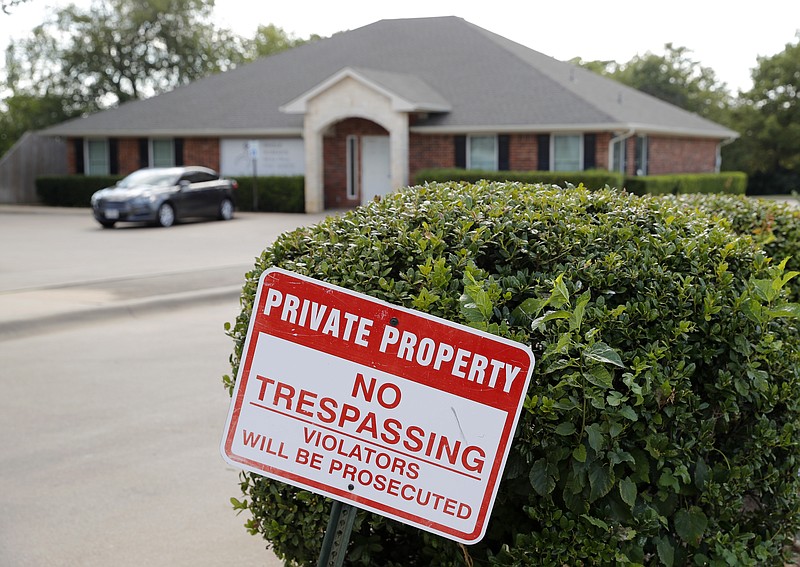After seven states passed sweeping abortion bans this year, speculation soon arose about the potentially onerous travel burdens the laws could someday impose on women seeking to end unwanted pregnancies.
Across a huge swath of West Texas and the Panhandle, there’s no need for speculation. The nearest abortion clinics are more than 250 miles away, despite the region having several midsize cities and a population of more than 1 million people.
“I’ve been telling folks, if you want to see the future, we’ve been living that since 2012,” said Denise Rodriguez of the Dallas-based Texas Equal Access Fund, which helps women across much of the state pay for abortions they could not otherwise afford.
Faced with drives of four hours or more to Fort Worth, Dallas, El Paso or out-of-state clinics, many women need at least two days to obtain an abortion — a situation advocates said exacerbates the challenges of arranging child care, taking time off work and finding lodging. Some end up sleeping in their cars.
Between 2011-13, the Texas Legislature slashed funding for family planning services and passed a law that imposed hospital-like operating standards on abortion clinics and required doctors who perform abortions to have admitting privileges in nearby hospitals.
The law led to closure of more than half the state’s 41 abortion clinics before its key provisions were struck down by the U.S. Supreme Court in 2016. There are now 23 abortion clinics in Texas, but none from Amarillo in the Panhandle south to Lubbock and the oil patch cities of Odessa and Midland. There used to be several.
Those four cities — along with Rapid City, South Dakota — are the farthest from an abortion clinic among all U.S. cities with more than 50,000 residents, according to a research team at the University of California, San Francisco.
Lubbock, with a population of about 250,000, is 310 miles from the nearest clinic in Fort Worth. Odessa, with 120,000 residents, is 280 miles from clinics in El Paso.
One result, according to the Texas Policy Evaluation Project at the University of Texas, has been a 50 percent decline in abortions in the affected counties.
In such a large state, clinic closures force women to travel farther, spend more time and money and often undergo “a different kind of procedure from the one they prefer.” The result, researchers said, is that legal abortion becomes unattainable.
The closures have increased the caseload for Fund Texas Choice, a statewide nonprofit. It doesn’t pay for abortions but covers patients’ other costs, including transportation and lodging.
Sarah Lopez, the fund’s program coordinator, said many requests come from the Panhandle, where clients often must endure a round trip of 700 miles or more.
Many abortion seekers “don’t even realize how far away a clinic is until they start looking,” she said.
Among recent clients was a 20-year-old Amarillo woman who made a solo 290-mile drive to Albuquerque, New Mexico, in June to get an abortion. The unmarried woman, who asked to be identified only as Angel to protect her privacy, said she already has two children, 6 months and 2 years old.
“I knew I couldn’t handle another,” she said.
The trip took 4 hours, 20 minutes — mostly through open desert. She spent the night at a motel before driving back to Amarillo. The abortion cost $450. The fund helped with Angel’s motel bill and gas money.
Angel opted for Albuquerque only after Google searches and phone calls produced no easier alternative.
“I was trying to get help with basically everything,” she said. “The procedure itself is expensive, and there was no way I could also afford the traveling.”
Angel said she works as a home health care aide and hopes to study criminal justice at college en route to becoming an investigator. She also wants to advocate for abortion access.
Another group offering assistance is the Dallas-based Afiya Center, which advocates for reproductive rights on behalf of black women in Texas.
Emma Robinson, Afiya’s digital organizer, said the first client to get such help was an 18-year-old from Odessa who got pregnant as she was finishing high school and feared her dream of attending college would be dashed if she had a child. Last year, Afiya helped finance the young woman’s round trip by bus to Dallas, where she got an abortion, and then helped her patch up differences with her mother, who had vehemently opposed the abortion.
The woman has now enrolled in college, Robinson said: “She’s very determined to have a life different from her mom, who gave birth to her at a young age.”
Planned Parenthood, which closed abortion clinics in Lubbock and Midland in 2013, hopes to re-establish its presence in the region. A donor has pledged several million dollars for that cause. Spokeswoman Sarah Wheat says the organization — wary of possible harassment — is not ready to announce where a new health center might be located or what services it would provide.

